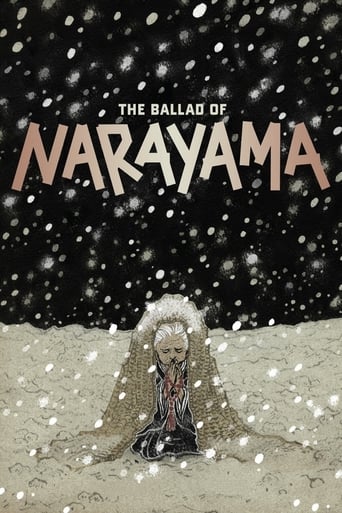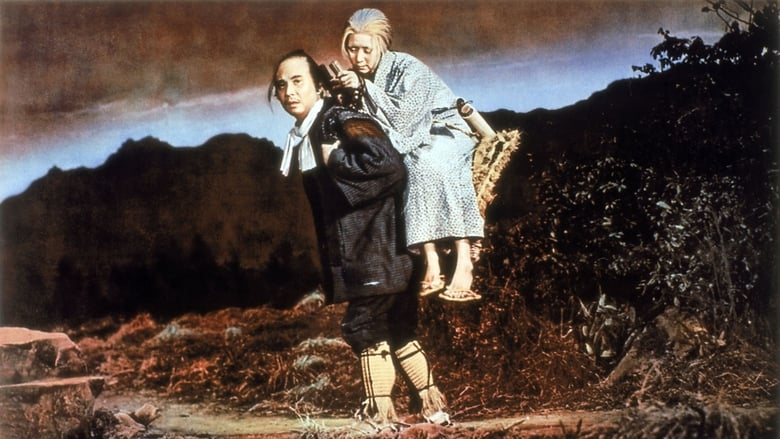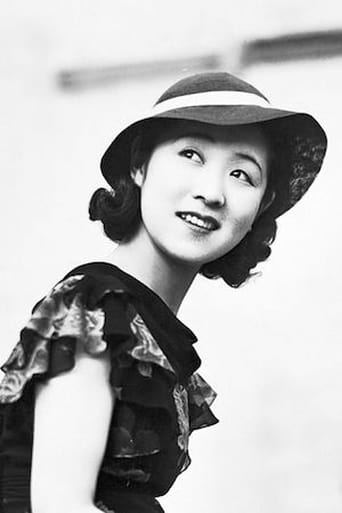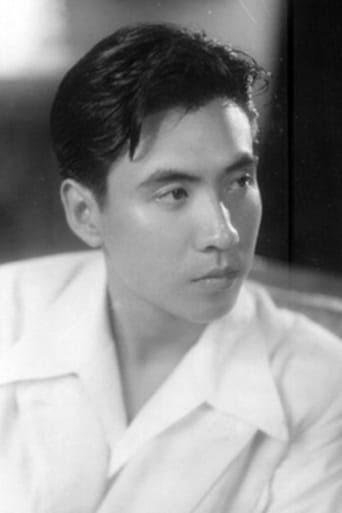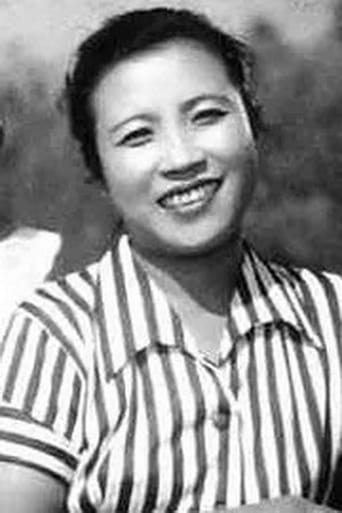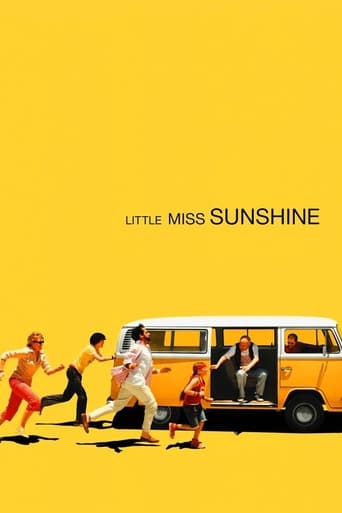The Ballad of Narayama (1958)
In Kabuki style, the film tells the story of a remote mountain village where the scarcity of food leads to a voluntary but socially-enforced policy in which relatives carry 70-year-old family members up Narayama mountain to die. Granny Orin is approaching 70, content to embrace her fate. Her widowed son Tatsuhei cannot bear losing his mother, even as she arranges his marriage to a widow his age. Her grandson Kesa, who's girlfriend is pregnant, is selfishly happy to see Orin die. Around them, a family of thieves are dealt with severely, and an old man, past 70, whose son has cast him out, scrounges for food. Will Orin's loving and accepting spirit teach and ennoble her family?
Watch Trailer
Cast


Similar titles
Reviews
It's fun, it's light, [but] it has a hard time when its tries to get heavy.
In truth, there is barely enough story here to make a film.
Fanciful, disturbing, and wildly original, it announces the arrival of a fresh, bold voice in American cinema.
At first rather annoying in its heavy emphasis on reenactments, this movie ultimately proves fascinating, simply because the complicated, highly dramatic tale it tells still almost defies belief.
The Ballad of Narayama (Japanese: Narayama bushikô) (1958) (Not to be confused with the even more difficult to watch Palme d'Or winning 1983 version.) A stage play on film, Sung Kabuki narration Beautiful backdrops, Old woman piggybacks son Slow, strange, can be hard to watch. http://all-that-is-interesting.com/ubasute/2 (Tanka (短歌 tan-kah) poems are unrhymed short poems that are five lines long, with the 5-7-5-7-7 syllable format. #Tanka #PoemReview
This is the story of an old woman who according to customary tradition of the remote Japanese village where she lives, must be carried by his son to the top of the neighbouring Narayama mountain to meet the gods and die since she has reached 70 years of age. Behind this tradition who seems awful to our western minds, lies the fact that the community is too poor to be able to support its old people. But tradition doesn't always subjugate human feelings and if the old woman shows herself as resigned to her fate and even displays some joy in fulfilling the tradition rules, his son feels a deep sorrow in accomplishing that terrible duty and while doing it he must fight in his heart and mind to subdue those loving and compassionate feelings. The scene at the top of the mountain when he is carrying his mother and ends up by laying her on the ground where soon snow begins to fall is intensely tragic in its silence interrupted now and then by the outbursts of the powerless and extremely emotional son's revolt. All along the film we hear to the voice off of a commentator who narrates the story accompanied by a beautiful traditional Japanese music. This commentator's performance reminds us of the role of the chorus present in ancient Greek tragedies. The images make us think of the traditional Japanese paintings with their patches of neat colours making a somewhat theatrical scenery. This movie gives way to deep emotions although not exposed with our kind of western reactions but with Japanese type ones which doesn't make them appear less human.
Truly the work of a master filmmaker. Although I learn Mr. Kinoshita died about two years ago, he left this lesson of how to film, photograph AND musically score movies. I know this is a hard-to-get movie, and it's a hard-to-"get" movie, but once the story drifts into your brain, you will forget it not. The synopsis (and this is not a SPOILER) is simple. Old Village has tradition to send the old (70 years old) up a mountain to die. Mother of widowed son wants to do this. She is 73 and still waiting for her son to get married. Son loves mom and doesn't want her to die alone on mountain.Enter spouse-to-be. Enter the pain of the son versus the power of tradition. All of this Beautifully shot. AND it has a remake, by Shoei Imamura, inferior in storytelling and art yet superior in fame.
The same story: a village, a young man with his old mother. He will bring her to die to Narayama. the interest of this movie is the mix of tabuchi theatre and cinema. Each scene began at the same time the previous one is finishing. And really poetical story, and movie

